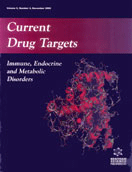Abstract
Gallstone disease in the Western world has an estimated prevalence of 10-15% and more than 75% are cholesterol-enriched gallstones. Defective gallbladder motility has been identified as an important pathogenic factor for cholesterol gallstone disease. Various agents may enhance or impair postprandial gallbladder motility, and their effects on interdigestive gallbladder and intestinal motility should also be taken into account. Patients in high-risk situations for gallstone disease, and those chronically treated with drugs inhibiting gallbladder motility (e.g. somatostatin analogues) may benefit from improving gallbladder motility with prokinetic agents. Whether such a strategy can really prevent gallstone formation is still unknown, long-term studies are lacking so far. The efficacy of bile acid therapy with UDCA for gallstone dissolution or for prevention in high risk patients is limited and hampered by high recurrence rates. The efficacy of UDCA in prevention of colics or gallstone related complications in symptomatic patients with gallbladder stones with contraindications for operation or on the waiting list should be explored further, since several retrospective studies showed favourable outcomes with this strategy.
Keywords: cholecystokinin, cholecystectomy
Current Drug Targets - Immune, Endocrine & Metabolic Disorders
Title: Drugs Affecting Biliary Lipid Secretion and Gallbladder Motility: Their Potential Role in Gallstone Treatment and Prevention
Volume: 5 Issue: 2
Author(s): Gerard P. vanBerge-Henegouwen, Niels G. Venneman, Karel J. van Erpecum and Piero Portincasa
Affiliation:
Keywords: cholecystokinin, cholecystectomy
Abstract: Gallstone disease in the Western world has an estimated prevalence of 10-15% and more than 75% are cholesterol-enriched gallstones. Defective gallbladder motility has been identified as an important pathogenic factor for cholesterol gallstone disease. Various agents may enhance or impair postprandial gallbladder motility, and their effects on interdigestive gallbladder and intestinal motility should also be taken into account. Patients in high-risk situations for gallstone disease, and those chronically treated with drugs inhibiting gallbladder motility (e.g. somatostatin analogues) may benefit from improving gallbladder motility with prokinetic agents. Whether such a strategy can really prevent gallstone formation is still unknown, long-term studies are lacking so far. The efficacy of bile acid therapy with UDCA for gallstone dissolution or for prevention in high risk patients is limited and hampered by high recurrence rates. The efficacy of UDCA in prevention of colics or gallstone related complications in symptomatic patients with gallbladder stones with contraindications for operation or on the waiting list should be explored further, since several retrospective studies showed favourable outcomes with this strategy.
Export Options
About this article
Cite this article as:
vanBerge-Henegouwen P. Gerard, Venneman G. Niels, van Erpecum J. Karel and Portincasa Piero, Drugs Affecting Biliary Lipid Secretion and Gallbladder Motility: Their Potential Role in Gallstone Treatment and Prevention, Current Drug Targets - Immune, Endocrine & Metabolic Disorders 2005; 5 (2) . https://dx.doi.org/10.2174/1568005310505020185
| DOI https://dx.doi.org/10.2174/1568005310505020185 |
Print ISSN 1568-0088 |
| Publisher Name Bentham Science Publisher |
Online ISSN 1875-5917 |
Related Articles
-
Principles and Therapeutic Relevance for Targeting Mitochondria in Aging and Neurodegenerative Diseases
Current Pharmaceutical Design Pathophysiology of Transmissible Spongiform Encephalopathies
Current Medicinal Chemistry - Immunology, Endocrine & Metabolic Agents Opening New Scenarios for Human MAO Inhibitors
Central Nervous System Agents in Medicinal Chemistry Biopharmaceutical Therapeutics for Asthma Remodeling
Current Pharmaceutical Design Hypertension in 2017: Update in Treatment and Pharmaceutical Innovations
Current Pharmaceutical Design Long-Acting Insulin Analogs: A Review of “Real-World” Effectiveness in Patients with Type 2 Diabetes
Current Diabetes Reviews Risk Factors for Heart Failure Progression and Outcomes
Current Cardiology Reviews Role of PGE2 and EP Receptors in the Pathogenesis of Rheumatoid Arthritis and as a Novel Therapeutic Strategy
Endocrine, Metabolic & Immune Disorders - Drug Targets Beneficial Effects of Plant Sources on the Treatment of Osteoporosis
Current Drug Targets Therapeutical Potential of CB<sub>2</sub> Receptors in Immune-Related Diseases
Current Molecular Pharmacology Age-Related Sleep Changes and its Implication in Neurodegenerative Diseases
Current Aging Science Vitamin D Intake and Obesity in Occupational Asthma Patients and the Need for Supplementation
Endocrine, Metabolic & Immune Disorders - Drug Targets Early Apoptotic Vascular Signaling is Determined by Sirt1 Through Nuclear Shuttling, Forkhead Trafficking, Bad, and Mitochondrial Caspase Activation
Current Neurovascular Research Changes in the Expression of the Alzheimers Disease-Associated Presenilin Gene in Drosophila Heart Leads to Cardiac Dysfunction
Current Alzheimer Research The Biology of TRAIL and the Role of TRAIL-Based Therapeutics in Infectious Diseases
Anti-Infective Agents in Medicinal Chemistry Fat and Aging: A Tale of Two Tissues
Current Aging Science Efficacy and Cardiovascular Safety of GLP-1 Receptor Analogues
Current Drug Safety Mediterranean Diet And Longevity: An Example Of Nutraceuticals?
Current Vascular Pharmacology Monoaminergic Receptors as Modulators of the Perivascular Sympathetic and Sensory CGRPergic Outflows
Current Neuropharmacology Recent Advances in Design of Glycogen Phosphorylase Inhibitors
Current Enzyme Inhibition



















